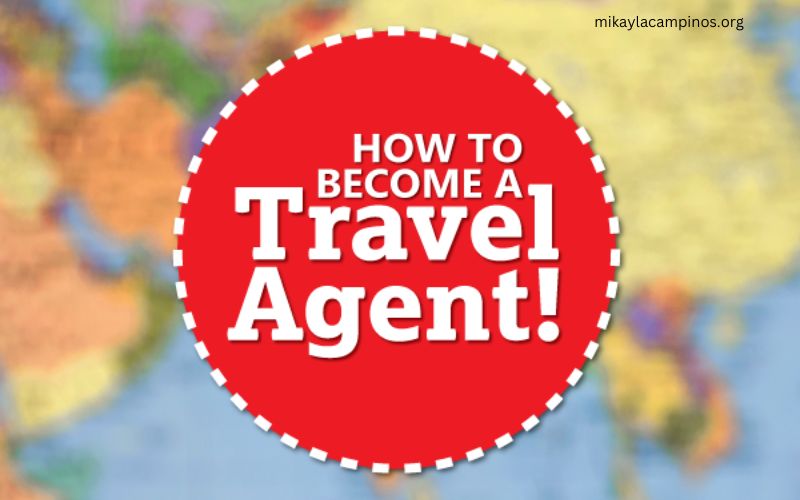Are you passionate about travel and helping others plan their dream vacations? If so, becoming a travel agent might be the perfect career path for you. As a travel agent, you’ll have the opportunity to turn your love of travel into a rewarding profession. In this comprehensive guide, we’ll walk you through the steps to becoming a successful travel agent, from acquiring the necessary skills and qualifications to building a thriving client base.
Why Become a Travel Agent?
Becoming a travel agent offers several compelling benefits. Firstly, you’ll have the opportunity to turn your passion for travel into a career. As a travel agent, you’ll be able to share your knowledge and expertise with clients, helping them plan unforgettable trips. Additionally, the travel industry is constantly evolving, providing you with the chance to stay up-to-date on the latest trends, destinations, and travel products.
Another significant advantage of becoming a travel agent is the flexibility and work-life balance it can offer. Many travel agents have the option to work from home, allowing them to create their own schedules and enjoy a better work-life balance. Furthermore, the commission-based nature of the job means that your earning potential is largely based on your ability to secure and retain clients, providing you with the opportunity to earn a lucrative income.
Skills and Qualifications Required to Become a Travel Agent
To become a successful travel agent, you’ll need to possess a unique set of skills and qualifications. Firstly, it’s essential to have a deep passion for travel and a strong understanding of various destinations, cultures, and travel products. As a travel agent, you’ll be expected to provide expert advice and recommendations to your clients, so a comprehensive knowledge of the travel industry is crucial.
In addition to your travel expertise, you’ll also need to possess excellent customer service skills. As a travel agent, you’ll be working closely with clients to plan their dream vacations, so the ability to listen, communicate effectively, and address their needs is paramount. Strong problem-solving and organizational skills are also essential, as you’ll be responsible for coordinating various aspects of a client’s trip, from booking flights and accommodations to arranging transportation and activities.
Steps to Becoming a Travel Agent
- Obtain the Necessary Education and Training: While there are no formal educational requirements to become a travel agent, many employers prefer candidates with a background in tourism, hospitality, or a related field. Consider enrolling in a travel and tourism program or obtaining a certification in travel planning to demonstrate your expertise.
- Gain Relevant Experience: Before launching your career as a travel agent, it’s beneficial to gain hands-on experience in the industry. Consider working as a customer service representative for an airline, hotel, or travel agency to develop a deeper understanding of the travel industry and customer needs.
- Obtain Industry Certifications: Many travel agencies and professional organizations offer certification programs for aspiring travel agents. These certifications can help you demonstrate your expertise and stand out in the job market. Some popular certifications include the Certified Travel Associate (CTA) and Certified Travel Counselor (CTC) designations.
- Build a Specialized Knowledge Base: As a travel agent, it’s essential to develop a deep understanding of specific destinations, travel products, and industry trends. Consider specializing in a particular region, such as Europe or Asia, or focusing on a specific travel niche, such as adventure travel or luxury vacations.
- Develop a Strong Network: Building a robust network of industry contacts, including other travel agents, tour operators, and suppliers, can be incredibly valuable in your career as a travel agent. Attend industry events, join professional organizations, and leverage your connections to stay informed about the latest trends and opportunities.
Choosing a Travel Agency or Starting Your Own Business
Once you’ve acquired the necessary skills and qualifications, you’ll need to decide whether to work for an established travel agency or start your own travel agency business. Working for a travel agency can provide you with a stable income, access to a client base, and the support of a larger organization. However, starting your own travel agency can offer greater flexibility, autonomy, and the potential for higher earnings.
If you choose to start your own travel agency, you’ll need to consider factors such as business registration, licensing requirements, and the development of a strong brand and marketing strategy. You’ll also need to establish relationships with travel suppliers, such as airlines, hotels, and tour operators, to secure competitive rates and commissions for your clients.
Training and Certification Options for Travel Agents
As mentioned earlier, obtaining industry certifications can be a valuable asset in your career as a travel agent. Some of the most popular training and certification options include:
- Certified Travel Associate (CTA): Offered by the Travel Institute, the CTA program provides a comprehensive education in the fundamentals of travel planning and customer service.
- Certified Travel Counselor (CTC): The CTC certification, also offered by the Travel Institute, is a more advanced program that focuses on destination expertise, sales strategies, and leadership skills.
- Certified Destination Specialist (CDS): This certification, offered by various industry organizations, allows you to specialize in a particular destination or region, demonstrating your in-depth knowledge to clients.
- Certified Travel Industry Executive (CTIE): The CTIE certification, offered by the Travel Institute, is designed for experienced travel professionals who are interested in advancing their careers into management or leadership roles.
In addition to these formal certification programs, many travel agencies and industry associations offer ongoing training and professional development opportunities to help you stay up-to-date on the latest trends and best practices in the industry.
Building a Network and Finding Clients as a Travel Agent
As a travel agent, building a strong network and finding clients are crucial to your success. Start by networking with other travel professionals, such as tour operators, travel bloggers, and industry associations. Attend industry events, conferences, and trade shows to connect with potential partners and clients.
Leverage your personal and professional connections to spread the word about your travel agency services. Encourage satisfied clients to refer their friends and family members to you, and consider offering incentives for referrals. Additionally, develop a robust online presence by creating a professional website, engaging on social media, and leveraging digital marketing strategies to attract potential clients.
Tools and Resources for Travel Agents
As a travel agent, you’ll have access to a variety of tools and resources to help you plan and book travel for your clients. Some of the most essential tools include:
- Global Distribution Systems (GDS): GDS platforms, such as Sabre, Amadeus, and Galileo, provide access to a wide range of travel products, including flights, hotels, and car rentals.
- Customer Relationship Management (CRM) Software: CRM tools, such as Salesforce or HubSpot, can help you manage your client database, track customer interactions, and streamline your booking and communication processes.
- Travel Booking Platforms: Specialized travel booking platforms, like Travelport or Traveldoo, offer a user-friendly interface for quickly and efficiently booking travel components for your clients.
- Industry Publications and Newsletters: Stay informed about the latest trends, destinations, and industry news by subscribing to relevant publications and newsletters, such as Travel Weekly or TravelPulse.
- Destination Research Tools: Utilize online resources, such as tourism board websites and travel review platforms, to research and stay up-to-date on the latest information about destinations and travel products.
Challenges and Opportunities in the Travel Industry
As a travel agent, you’ll face a variety of challenges and opportunities in the industry. One of the primary challenges is the increasing prevalence of online travel booking platforms, which have made it easier for consumers to plan and book their own trips. To stay competitive, travel agents must continuously adapt their services and provide added value to clients, such as personalized recommendations, insider knowledge, and exceptional customer service.
At the same time, the travel industry is constantly evolving, presenting numerous opportunities for savvy travel agents. The rise of niche travel segments, such as adventure tourism, wellness travel, and sustainable travel, can allow you to differentiate your services and cater to specific client needs. Additionally, the growing demand for complex, customized travel itineraries can play to the strengths of experienced travel agents who can navigate the nuances of international travel planning.
Conclusion
Becoming a successful travel agent requires a unique blend of travel expertise, customer service skills, and business acumen. By following the steps outlined in this guide, you can position yourself for a rewarding career in the travel industry.
Remember to continuously expand your knowledge, network with industry professionals, and stay up-to-date on the latest trends and technologies. Embrace the challenges and opportunities that come your way, and always strive to provide exceptional service to your clients.
If you’re ready to take the next step in your journey to becoming a travel agent, consider exploring our comprehensive training and certification programs. Our courses cover everything from destination expertise to customer service and sales strategies, equipping you with the skills and knowledge you need to succeed in this dynamic industry. Click here to learn more and get started on your path to a fulfilling career as a travel agent.



